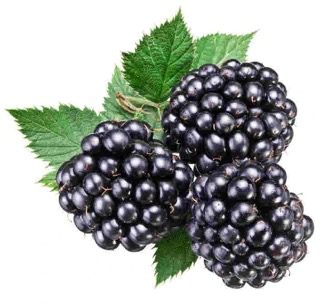

Dewberries are safe for dogs to eat, but caution should be taken as they often grow near poison ivy. It is important to monitor dogs closely when exploring greeneries to ensure they do not come into contact with poison ivy.
Dewberries are a great source of nutrients such as vitamin C, vitamin A, potassium, and zinc, which help boost the immune system.
Excessive consumption of dewberries can lead to digestive issues like vomiting or diarrhea. Additionally, foraging for dewberries can pose a risk as the plants often grow near poison ivy.
Dewberries should be consumed when ripe, fresh, or frozen. It is recommended to give dewberries to dogs in moderation as an occasional treat.
Dewberries, also known as Rubus caesius, are a type of fruit that belong to the same family as blackberries and raspberries. They are native to North America and are commonly found in the wild. Dewberries are a safe snack for dogs, but considering that they grow near poison ivy, it is crucial to keep an eye on your furry friend. Dewberries provide essential vitamins and minerals like vitamin C, vitamin A, potassium, and zinc, which aid in strengthening the immune system. However, excessive consumption can result in digestive issues such as vomiting and diarrhea. Dewberries are relatively affordable and easily accessible when in season, and they can be served fresh or frozen, as long as they are ripe. A good way of serving dewberries to dogs is by incorporating them into their meals or by freezing them as a refreshing treat. Alternatively, blueberries and strawberries are other dog-friendly, nutrient-rich options to consider. Have you ever given dewberries to your pet, and did they like them? Always remember to supervise them and keep them safe during explorations.
To all the sweet pups out there, enjoy your fruity treats in moderation, and stay healthy and waggy!